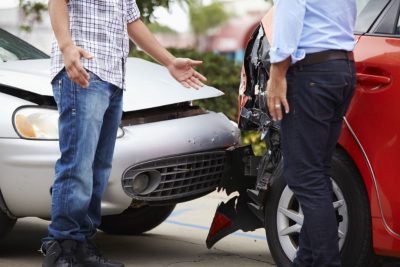
Is there any more sickening sound than the crunch of metal on metal when your car impacts — or is impacted by — another vehicle? Automobile accidents are always scary, but if you are able to walk away from the scene of the collision without injury, you should count yourself very lucky indeed.
In the event that you do sustain an injury during an accident, it’s important to see your primary care physician as soon as possible afterward — that is, if you aren’t checked out by EMTs on the scene or taken directly to the hospital. And while Western medicine is perhaps the most popular way to treat the injuries resulting from a crash, complementary treatments can go a long way toward helping you get back on your feet faster. Let’s take a look at three of the most promising!
First, What Accident-Related Injuries Are Most Common?
Naturally, the type and extent of injuries you may incur during a crash will vary. It depends on whether you were driving or a passenger, what part of your vehicle was impacted, your seat belt use or lack thereof, and whether or not your airbags deployed.
That said, the most common injuries tied to car accidents include:
- Head injuries, including traumatic brain injury (TBI)
- Back injuries
- Skull fractures or concussions
- Whiplash
- Blunt force trauma
- Broken ribs or collarbone
- Collapsed lungs
- Knee injuries
- Emotional trauma and post-traumatic stress disorder (PTSD)
Remember, too, that some injuries might not be apparent immediately after the accident. Over the weeks and months following an accident, monitor any symptoms that might arise and consult with your physician as needed.
It’s important to get a checkup right after the accident, and then again several weeks later, not just for the sake of your health but also in the event that you – or the other driver – pursues legal action. This is especially true if you’re involved in a DWI accident. According to David Hunter Law Firm, a DWI attorney in Fort Bend County, establishing a “paper trail” of medical documentation can make or break a personal injury claim or defense– every bit of evidence can be helpful for your case.
What Is Complementary Medicine?
Some people refer to these techniques for pain relief and healing as “alternative medicine,” but healthcare experts advise that it’s better to consider them “complementary treatments” — that is, approaches that are used alongside traditional medical treatment methods.
Acupuncture
With its origin in ancient China, acupuncture has been practiced for some 2,500 years, according to the National Center for Complementary and Integrative Health. It involves the use of thin, flexible needles inserted into the skin to stimulate and support the flow of energy, or chi, through the body.
Acupuncture is one of the complementary medicine treatments that has been thoroughly studied, and there is ample evidence that it can reduce inflammation, reduce scarring, increase blood flow to the injured area, and help your body as it regenerates tissue. It may also relieve pain.
Chiropractic
Chiropractic is another complementary treatment that has undergone rigorous scientific scrutiny. It has been found so beneficial that most insurance carriers now cover it. Chiropractors address subluxation, or misalignment of the vertebrae, but it isn’t just reserved for treating back pain. Rather, poor spinal health has a ripple effect and can be detrimental to the patient’s muscles, nervous system, and joints.
CBD Oil
Unless you’ve been living under a rock for the past few years, it’s likely that you’ve noticed a huge upswing in the popularity and availability of CBD oil. Although it is still early days in terms of our knowledge about how CBD affects the human body, there’s enough evidence that it’s effective to make it worth your while.
CBD is sometimes confused with THC, as both are derived from cannabis, but they’re not the same. THC is the chemical compound that causes the intoxication most of us associate with marijuana; CBD does not contain that compound and won’t get you high.
In addition to alleviating both chronic and acute pain, CBD oil has proven to be beneficial in treating anxiety, depression, and insomnia — all of which can result from the trauma of a motor vehicle accident.
Exercise caution if you want to give CBD oil a try. It is contraindicated with certain medications, including commonly prescribed opiate pain relievers and benzodiazepines. Make sure you have your doctor’s go-ahead before you take any product containing CBD.
Wrapping Up
Even a relatively minor fender-bender can leave you feeling rattled and on edge, but more serious accidents have even greater consequences. To give yourself the best chance of a speedy recover, look into complementary treatments to try alongside the physical therapy, medications, or other approaches recommended by your primary care doctor.
Have you ever tried CBD oil, acupuncture, or a chiropractic adjustment? Tell us about your experience in the comment section below!










